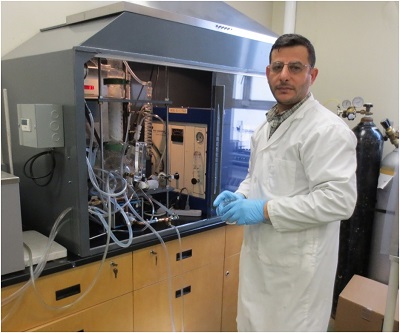A Ryerson University researcher has developed a new environmentally and economically-friendly treatment process.
Treatment of industrial waste water is one of the biggest environmental challenges of our time. All major energy production and manufacturing industries require water as a critical input.
Waste water is often kept in large settling ponds for decades, waiting for the contaminants to slowly break down, putting the water at risk of spills and leakages.
Ryerson University engineer, Ali Kamel H. Al jibouri—who recently finished his PhD study with the Department of Chemical Engineering—has developed an advanced oxidation process (AOP) to address these risks. The new AOP advancement was designed for the treatment of non-biodegradable pollutants in industrial waste water that will save the industry time and money.
Al jibouri said, “We cannot turn the clock back before the industrial revolution era, but we can reduce its impact on our environment. Therefore, we need to act quickly by finding efficient ways to remove these pollutants; this is what we tried to do in our research.”
Al jibouri chose to focus his research on the treatment of toxic and non-biodegradable Naphthenic acids (NAs) due to its importance as a major pollutant in the Canadian oil and oil sands industries. When left to the natural bio-degradation process, the half-life of NAs is around 13 years, meaning at least 13 years are needed to reduce NA concentration to half of its original concentration levels—levels which are often still too high to be returned to the general water supply.
His new process removes all non-biodegradable pollutants and its toxicity, and does so in less than three minutes.
After treatment through his process, the industrial waste water was considered to contain only rapid biodegradable pollutants, allowing it to then be treated in a way similar to municipal wastewater. At the same time, the ozone gas consumption required to treat the wastewater was reduced to its minimum, in turn reducing the economic cost associated with the process. Al jibouri estimates his process saves roughly 35-80 per cent in operating costs compared to other traditional advanced oxidation waste water treatment approaches.
For more information on this innovation, visit: http://www.ryerson.ca/index.html









